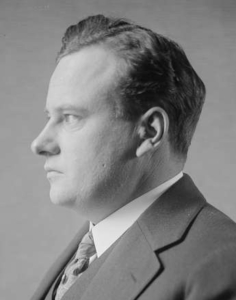REVIEW POTPOURRI: Music and Literature
 by Peter Cates
by Peter Cates
The Five Scamps
The Five Scamps, The Fishing Song; and Good Lover Blues. Columbia 30168, ten-inch 78, recorded 1949.
The Five Scamps were an African American group of singers and instrumentalists who began performing informally in a WPA work camp in 1936 but then the story ends there until 1946, when their professional career started taking off in Kansas City, Missouri, and extended to California and a contract with Columbia Records in 1948.
The Fishing Song is a hilarious, slightly risqué number while Good Lover Blues is a most captivating example of early rhythm and blues.
By 1950, after recording eight titles, Columbia terminated their contract due to a lack of sales but the group would earn a decent living as a night club act in Kansas City, with some changes of personnel until the early 2000s when they called it quits due to old age.
Nathaniel Hawthorne
In an 1837 entry in his ever-fascinating American Note-Books, Nathaniel Hawthorne writes the following during his visits with friends in Central Maine:
“On the road from Hallowell to Augusta we saw little booths, in two places, erected on the roadside, where boys offered beer, apples, etc., for sale. We passed an Irishwoman with a child in her arms, and a heavy bundle, and afterwards an Irishman with a light bundle, sitting by the highway. They were husband and wife; and B__ says that an Irishman and his wife, on their journeys, do not usually walk side by side, but that the man gives the woman the heaviest burden to carry, and walks on lightly ahead!”
These patriarchal and lazy attitudes of so many husbands expecting their wives to be beasts of burden during the good old days of 150 to 200 years ago were recounted in anecdotes by my own relatives, nowadays in blessed eternity, about how some of our ancestors treated their spouses.
I am also now curious as to whether Hawthorne visited East Vassalboro and South China during his travels around Augusta and the Kennebec River, and what he would have seen along the China Lake stagecoach roads.
Special Ops
I have recently started watching season one of Special Ops: The Lioness, a very suspenseful new series based on the increased recruitment of women in secret intelligence operations in the Middle East and elsewhere starting around 2003.
The only familiar face here is the very good Nicole Kidman as a CIA boss but the rest of the cast also does superb work.
Kudos to the on-location cinematography along Chesapeake Bay Bridge and elsewhere.
Raymond Dixon
Raymond Dixon – Underneath the Stars; Alice Green and Harry Macdonough – Shadowland. Victor 17946, ten-inch acoustic shellac disc, recorded January 4, 1916.
Raymond Dixon, Harry Macdonough and Alice Green were pseudonyms used by tenors Lambert Murphy (1885-1954) and John Scantlebury Macdonald (1871-1931) and soprano Olive Kline (1887-1976) while the two songs fall into the long forgotten category; and they are immensely charming ones which have held up through several recent playings of this record.
Murphy’s voice had an appealingly effusive quality which suited the expressed romantic sentiments of the nocturnal Underneath the Stars.
Shadowland was more upbeat but evoked similar emotions aroused during a nighttime stroll with one’s significant other. The lean tart vocalism of Macdonald’s reedy tenor blended well with Kline’s consistently exquisite high notes.
Olive Kline’s 1929 electrically recorded rendition of Ethelbert Nevin’s Mighty Lak A Rose remains one of my favorite vocal records of all time since I first heard it more than 10 years ago and I own the original 78 and an Amazon cd special transfer.
Graham Greene
Graham Greene in his 1969 Collected Essays described “Beatrix Potter’s style” as having “a selective realism, which takes emotion for granted and puts aside love and death with a gentle detachment.” That “gentle detachment” is evoked in the manner in which Peter Rabbit’s mother sweetly reminds Peter and his siblings of steering clear of the McGregor garden – “Your father had an accident there; he was put in a pie by Mrs. McGregor.”
My first encounter at the age of six with Peter Rabbit’s foolhardiness was through a five-inch yellow plastic 78 Golden Record in which Peter was depicted being shot at, sound effects and all, by the evil Mr. McGregor’s shotgun. For several years in my mind, the name McGregor equalled those of Hitler, Stalin and Dillinger in the ominous realm.
Greene also provided a telling quote from what he considered to be one of her masterpieces, The Roly-Poly Pudding in which rats in the attic have captured Tom Kitten:
– “Anna Maria,” said the old man rat (whose name was Samuel Whiskers), “Anna Maria, make me a kitten dumpling roly-poly pudding for my dinner. “
– “It requires dough and a pat of butter, and a rolling pin,” said Anna Maria, considering Tom Kitten with her head on one side.
– “No,” said Samuel Whiskers, “Make it properly, Anna Maria, with breadcrumbs.”
Responsible journalism is hard work!
It is also expensive!
If you enjoy reading The Town Line and the good news we bring you each week, would you consider a donation to help us continue the work we’re doing?
The Town Line is a 501(c)(3) nonprofit private foundation, and all donations are tax deductible under the Internal Revenue Service code.
To help, please visit our online donation page or mail a check payable to The Town Line, PO Box 89, South China, ME 04358. Your contribution is appreciated!






Leave a Reply
Want to join the discussion?Feel free to contribute!